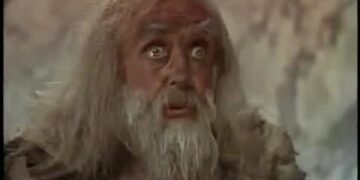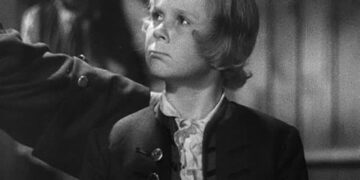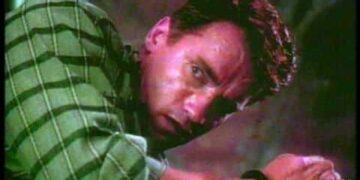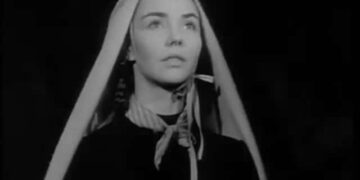In the book ‘Stonewall: The Riots That Sparked the Gay Revolution’, author David Carter delves deep into the events that occurred during the Stonewall riots and the subsequent impact on the LGBTQ+ rights movement.
This book summary aims to provide a comprehensive overview of the plot, main themes, and key figures involved. By understanding the historical context and significance of the Stonewall riots, readers can gain a deeper appreciation for the struggles and triumphs of the LGBTQ+ community.
Overview of the book’s plot and main themes
‘Stonewall: The Riots That Sparked the Gay Revolution’ recounts the events that unfolded during the Stonewall riots in June 1969. The book explores the social and political climate leading up to the riots, highlighting the discrimination and oppression faced by the LGBTQ+ community at the time. Through vivid storytelling, Carter portrays the courageous individuals who fought back against police brutality and sparked a revolution.
The main themes of the book revolve around the struggle for LGBTQ+ rights, empowerment, and the fight against discrimination. Carter delves into the history of LGBTQ+ activism and the role that the Stonewall riots played in galvanizing the movement. By examining the events through multiple perspectives, the book offers a nuanced understanding of the complexities surrounding the riots and their aftermath.
When and where the Stonewall riots took place
The Stonewall riots occurred in the early hours of June 28, 1969, in the Greenwich Village neighborhood of New York City. The Stonewall Inn, a popular gay bar at the time, was raided by the police, triggering a series of protests and clashes that lasted for several days.
The riots marked a turning point in the LGBTQ+ rights movement and are widely regarded as a catalyst for future activism.
Film adaptation of ‘Stonewall’ – summary and key differences
A film adaptation of ‘Stonewall’ was released in 2015, directed by Roland Emmerich. The movie tells the story of a fictional character, Danny Winters, who becomes involved in the Stonewall riots. While the film incorporates historical elements, it deviates from the actual events in several ways.
In the movie, the character of Danny Winters takes center stage, overshadowing the real-life activists who played significant roles during the riots. This fictionalization drew criticism from some members of the LGBTQ+ community who felt that it undermined the importance of the actual historical figures. However, the film still serves as an introduction to the Stonewall riots for those who may be unfamiliar with the events.
Explore the film locations of ‘Stonewall’
For those interested in delving deeper into the world of ‘Stonewall’, visiting the film locations can provide a unique perspective. The movie was primarily filmed in and around Montreal, Canada, with various locations standing in for the streets of Greenwich Village. By visiting these sites, fans of the film and book can immerse themselves in the historical context and gain a deeper appreciation for the events that took place.
Introducing the key figures of the Stonewall riots
The Stonewall riots were fueled by the collective efforts of numerous individuals who stood up against injustice. Some of the key figures include Marsha P. Johnson, Sylvia Rivera, and Stormé DeLarverie. Marsha P. Johnson, an African American transgender woman, was a prominent activist and a leading figure in the LGBTQ+ rights movement.
Sylvia Rivera, a transgender woman of Puerto Rican and Venezuelan descent, co-founded the Street Transvestite Action Revolutionaries (STAR) and dedicated her life to advocating for the rights of transgender individuals. Stormé DeLarverie, a biracial lesbian, is believed to have thrown the first punch during the riots and was a fierce advocate for LGBTQ+ rights throughout her life.
Unforgettable quotes from ‘Stonewall: The Riots That Sparked the Gay Revolution’
‘Stonewall: The Riots That Sparked the Gay Revolution’ is filled with powerful quotes that encapsulate the spirit of the LGBTQ+ rights movement. Here are a few memorable lines from the book:
- “I’d like to see the day when you can walk in the park hand in hand with your lover and not have to worry about being harassed or beaten up.”
- “We were tired of being pushed around. We were tired of being treated like second-class citizens.”
- “We were fighting back for the first time, and it felt empowering.”
These quotes serve as a reminder of the passion and determination exhibited by the activists during the Stonewall riots and continue to inspire generations to fight for equality.
The captivating soundtrack by Gary Lionelli
The film adaptation of ‘Stonewall’ features a captivating soundtrack composed by Gary Lionelli. The music enhances the emotional impact of the story, evoking a sense of resilience, hope, and defiance. From powerful orchestral pieces to energizing rock and roll tracks, the soundtrack complements the narrative and immerses viewers in the world of the Stonewall riots.
Curiosities and lesser-known facts about the Stonewall riots
While many may be familiar with the general outline of the Stonewall riots, there are several lesser-known facts and curiosities that add depth to the story. One such curiosity is the influence of transgender women of color in the movement.
Marsha P. Johnson and Sylvia Rivera, both transgender women of color, played pivotal roles during the riots and in subsequent activism. Their contributions are often overlooked or overshadowed in mainstream narratives, highlighting the need for intersectionality within the LGBTQ+ rights movement.
Another lesser-known fact is the impact of the Stonewall riots on the establishment of Pride marches. The first Pride march, known as the Christopher Street Liberation Day March, took place on June 28, 1970, to commemorate the first anniversary of the riots. This event marked the beginning of Pride celebrations worldwide and continues to be a symbol of LGBTQ+ visibility and activism.
Tips for cosplay and dressing like characters from ‘Stonewall’
For fans of the book and film who wish to pay homage to the characters from ‘Stonewall’, cosplay provides an opportunity to step into their shoes. Whether it’s dressing up as Marsha P. Johnson with her signature flower crowns or emulating the rebellious style of Stormé DeLarverie, there are various ways to recreate the iconic looks.
Researching the fashion trends of the late 1960s and early 1970s and paying attention to specific details can help bring the characters to life.
David Carter bio – a closer look at the author
David Carter, the author of ‘Stonewall: The Riots That Sparked the Gay Revolution’, is a renowned historian and LGBTQ+ rights activist. Born in 1947, Carter dedicated his life to researching and documenting LGBTQ+ history.
His meticulous research and dedication to accuracy shine through in ‘Stonewall’, making it a seminal work in the field of LGBTQ+ studies. Carter’s commitment to preserving the stories of those who fought for equality has left an indelible mark on the LGBTQ+ community and beyond.
Top 5 works by David Carter besides ‘Stonewall’
While ‘Stonewall: The Riots That Sparked the Gay Revolution’ is David Carter’s most well-known work, he has also authored several other significant works. Here are five notable books by David Carter:
- ‘The Politics of Gay Rights’
- ‘The Gay Rights Movement: A Reference Handbook’
- ‘Stonewall: The Riots That Sparked the Gay Revolution (Young Adult Edition)’
- ‘The Lavender Scare: The Cold War Persecution of Gays and Lesbians in the Federal Government’
- ‘The Stonewall Reader’
These works further explore the history and impact of the LGBTQ+ rights movement and provide valuable insights into the struggles faced by the community.
Other media related to the Stonewall uprising by Kate Davis and David Heilbroner
In addition to David Carter’s book, there are other notable media productions that shed light on the Stonewall uprising. One such documentary is ‘Stonewall Uprising’, directed by Kate Davis and David Heilbroner.
This powerful film examines the events leading up to the riots and their aftermath, featuring interviews with witnesses and participants. ‘Stonewall Uprising’ offers a comprehensive and engaging exploration of this pivotal moment in LGBTQ+ history.
10 movies similar to ‘Stonewall Uprising’
For those interested in delving deeper into LGBTQ+ history and activism, here are ten movies similar to ‘Stonewall Uprising’ that provide further insight into the struggles and triumphs of the community:
- ‘Milk’ (2008)
- ‘Pride’ (2014)
- ‘Paris is Burning’ (1990)
- ‘Brokeback Mountain’ (2005)
- ‘Moonlight’ (2016)
- ‘The Normal Heart’ (2014)
- ‘Philadelphia’ (1993)
- ‘Boys Don’t Cry’ (1999)
- ‘Carol’ (2015)
- ‘The Danish Girl’ (2015)
Each of these films offers a unique perspective on LGBTQ+ experiences and showcases the resilience and strength of the community.
Book club questions for ‘Stonewall: The Riots That Sparked the Gay Revolution’
For book clubs and discussion groups interested in exploring ‘Stonewall: The Riots That Sparked the Gay Revolution’, here are ten thought-provoking questions to stimulate conversation:
- How did reading ‘Stonewall’ deepen your understanding of LGBTQ+ history?
- Which historical figure or event from the book resonated with you the most, and why?
- In what ways did the Stonewall riots impact the LGBTQ+ rights movement?
- How does intersectionality play a role in the book’s narrative?
- What were your thoughts on the film adaptation of ‘Stonewall’?
- How did the book challenge or change your preconceived notions about the LGBTQ+ community?
- Discuss the significance of Marsha P. Johnson and Sylvia Rivera in the LGBTQ+ rights movement.
- How has the legacy of the Stonewall riots influenced activism today?
- What parallels can you draw between the struggles faced by the LGBTQ+ community in the 1960s and present-day issues?
- What steps can individuals and society take to ensure continued progress in LGBTQ+ rights?
These questions provide a starting point for meaningful discussions and encourage readers to delve deeper into the themes and messages of the book.
10 novels similar to ‘Stonewall: The Riots That Sparked the Gay Revolution’
For those interested in exploring LGBTQ+ history through fictional narratives, here are ten novels similar to ‘Stonewall: The Riots That Sparked the Gay Revolution’ that offer diverse perspectives and compelling storytelling:
- ‘Giovanni’s Room’ by James Baldwin
- ‘The Color Purple’ by Alice Walker
- ‘Fun Home’ by Alison Bechdel
- ‘Less’ by Andrew Sean Greer
- ‘Orlando’ by Virginia Woolf
- ‘The Picture of Dorian Gray’ by Oscar Wilde
- ‘Middlesex’ by Jeffrey Eugenides
- ‘Stone Butch Blues’ by Leslie Feinberg
- ‘Fingersmith’ by Sarah Waters
- ‘A Little Life’ by Hanya Yanagihara
These novels explore themes of identity, love, and resilience within the LGBTQ+ community and offer a wide range of narratives to engage and inspire readers.
Parent guide to discussing ‘Stonewall’ with children and teenagers
Engaging in conversations about LGBTQ+ history and rights with children and teenagers can foster understanding and empathy. When discussing ‘Stonewall’ with younger audiences, it is essential to tailor the conversation to their age and level of understanding. Here are some tips for parents:
- Create a safe and judgment-free space for discussion.
- Use age-appropriate language and concepts.
- Emphasize the importance of equality and respect for all individuals.
- Share stories of LGBTQ+ activists and their contributions.
- Encourage questions and provide honest, age-appropriate answers.
- Highlight the progress made in LGBTQ+ rights and the work that still needs to be done.
- Discuss the significance of Pride celebrations and their connection to the Stonewall riots.
- Encourage empathy and understanding towards the experiences of LGBTQ+ individuals.
By approaching these conversations with sensitivity and openness, parents can help foster inclusivity and acceptance in their children.
Buying guide and gift ideas for fans of ‘Stonewall’
For fans of ‘Stonewall: The Riots That Sparked the Gay Revolution’, there are various buying options and gift ideas that can further enhance their appreciation for the book and its historical significance. Here are a few suggestions:
- Purchase a physical or digital copy of ‘Stonewall’ for personal reading or gifting to friends and family.
- Explore LGBTQ+ history books that complement the themes of ‘Stonewall’.
- Support LGBTQ+ organizations and charities in honor of the Stonewall riots.
- Invest in LGBTQ+ pride merchandise, such as t-shirts, pins, or flags, to show support and solidarity.
- Attend LGBTQ+ pride events and marches to connect with the community and celebrate diversity.
By supporting LGBTQ+ causes and immersing themselves in the history and culture surrounding the Stonewall riots, fans can actively contribute to the ongoing fight for equality.
Conclusion: The Impact and Legacy of ‘Stonewall: The Riots That Sparked the Gay Revolution’
‘Stonewall: The Riots That Sparked the Gay Revolution’ by David Carter has had a profound impact on our understanding of LGBTQ+ history and the fight for equal rights. This comprehensive book summary has explored the themes and events of ‘Stonewall’ and provided recommendations for further reading and exploration.
The legacy of the Stonewall Riots continues to inspire activism and drive social change. By discussing ‘Stonewall’ with our children and teenagers, we can foster empathy and understanding, creating a more inclusive future.
Additionally, by investing in books, films, and merchandise related to Stonewall, we can support the ongoing efforts of the LGBTQ+ community and commemorate this pivotal moment in history.
Let us remember the words of Marsha P. Johnson, a transgender activist who played a significant role in the Stonewall Riots: “No pride for some of us without liberation for all of us.”
As we celebrate the progress made in the fight for LGBTQ+ rights, let us continue to strive for equality and acceptance for all.













